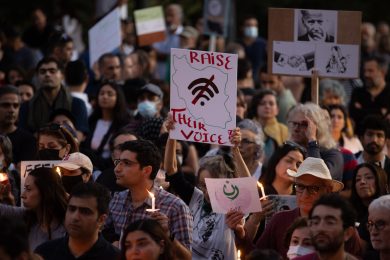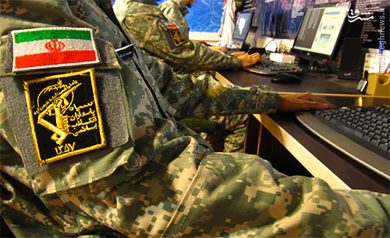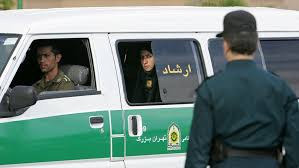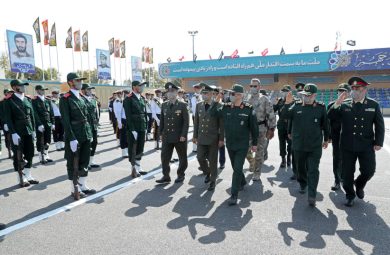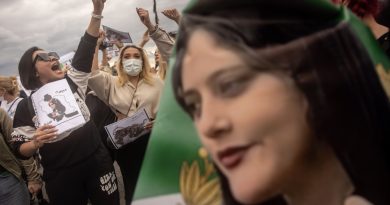The Islamic Revolutionary Guard Corps (IRGC) has long been a driving force behind Iran’s oppressive domestic policies and destabilizing international actions. With its extensive control over the country’s economy, military, and foreign policy, the IRGC is a state-sponsored apparatus of terror that suppresses dissent at home while funding and coordinating proxy wars and terrorism abroad. Despite global recognition of the IRGC’s actions, inconsistent international responses and inaction have allowed its influence to grow unchecked, resulting in escalating consequences for human rights, regional stability, and global security.
This analysis explores what happens when the IRGC is left unchallenged, the global consequences of inaction, and the urgent need for a unified international response.
The IRGC’s Expanding Influence
Established in 1979 to safeguard the Islamic Revolution, the IRGC has evolved into a multifaceted organization with unparalleled control over Iran’s military, economy, and political landscape. Today, it operates as:
1. A Military Powerhouse:
The IRGC oversees Iran’s ballistic missile program, runs advanced drone operations, and controls the elite Quds Force, responsible for extraterritorial operations. Its influence extends across the Middle East through proxies like Hezbollah, the Houthis, and Iraqi militias.
2. An Economic Giant:
The IRGC controls large portions of Iran’s economy, including construction, telecommunications, and energy industries. Its network of front companies and smuggling operations generates billions of dollars annually, funding both domestic repression and international destabilization efforts.
3. An Enforcer of Domestic Repression:
Domestically, the IRGC suppresses dissent through violent crackdowns on protests, widespread surveillance, and imprisonment of activists, journalists, and minority groups.
The Price of Inaction
When the IRGC’s actions are left unchallenged, the consequences reverberate across Iran, the Middle East, and the world. Below are the key ramifications of failing to address the IRGC’s influence.
1. Escalating Regional Conflicts
The IRGC’s involvement in regional conflicts has prolonged wars, fueled sectarian violence, and destabilized nations:
• Syria: The IRGC’s support for Bashar al-Assad’s regime, including funding and deploying militias, has sustained the Syrian Civil War, resulting in over half a million deaths and millions of displaced people.
• Yemen: By arming and training the Houthi rebels, the IRGC has exacerbated Yemen’s humanitarian crisis, with millions on the brink of famine.
• Iraq: The IRGC’s control over Shia militias has deepened sectarian divides and undermined efforts to rebuild Iraq’s sovereignty.
Unchallenged, the IRGC’s proxies will continue to destabilize the region, making peace and stability increasingly unattainable.
2. Threats to Global Security
The IRGC’s global operations, including terrorism, cyber warfare, and arms proliferation, pose significant risks to international security:
• Terrorism: The IRGC’s Quds Force supports terrorist groups like Hezbollah and Hamas, which have carried out attacks on civilians and infrastructure worldwide.
• Cyber Warfare: The IRGC has conducted cyberattacks targeting critical infrastructure in the United States, Israel, and Europe, threatening public safety and economic stability.
• Arms Proliferation: The IRGC supplies advanced weapons, including drones and precision-guided missiles, to its proxies, escalating the lethality of regional conflicts.
Failure to counter the IRGC emboldens it to expand these activities, increasing the likelihood of large-scale global crises.
3. Human Rights Violations
The IRGC’s role in domestic repression has devastated countless lives in Iran. Its actions include:
• Crackdowns on Protests: From the 2009 Green Movement to the 2022 Mahsa Amini protests, the IRGC has used excessive force to silence dissent, killing thousands and arresting tens of thousands
• Persecution of Minorities: Ethnic and religious minorities, including Kurds, Baha’is, and Ahwazi Arabs, face systemic discrimination and violence at the hands of the IRGC.
• Targeting Activists and Journalists: The IRGC routinely detains, tortures, and imprisons individuals who speak out against the regime, creating a climate of fear and suppression.
Inaction allows these abuses to continue unabated, leaving victims without justice or hope for change.
4. Economic and Political Impact
The IRGC’s corruption and economic domination have devastating consequences for Iran’s economy and political stability:
• Corruption and Mismanagement: The IRGC’s monopolization of key industries stifles competition, fosters corruption, and exacerbates economic inequality.
• Sanctions Evasion: The IRGC’s illicit financial networks enable it to bypass sanctions, undermining international efforts to hold the regime accountable.
• Erosion of Governance: By prioritizing its own interests over national development, the IRGC weakens state institutions, leaving Iran increasingly isolated and fragile.
The Global Stakes of Inaction
Allowing the IRGC to operate unchecked has far-reaching implications for the international community:
1. Erosion of International Norms:
The IRGC’s use of terrorism, smuggling, and cyberattacks undermines global rules and norms, setting a dangerous precedent for other malign actors.
2. Spillover of Instability:
The IRGC’s actions contribute to refugee crises, economic disruptions, and the spread of extremism, impacting neighboring countries and beyond.
3. Weakening of Alliances:
Inaction undermines the credibility of international coalitions, emboldening adversaries and weakening the resolve of allies to confront shared threats.
The Case for Confronting the IRGC
1. Protecting Regional and Global Security
Confronting the IRGC is essential to reducing terrorism, ending proxy wars, and preventing the spread of weapons of mass destruction. Addressing these threats strengthens stability and protects vulnerable populations.
2. Supporting Human Rights
Taking action against the IRGC demonstrates solidarity with Iranian activists, minorities, and dissidents, providing them with hope and international support in their fight for freedom and justice.
3. Upholding International Order
Targeting the IRGC’s networks reinforces global norms against terrorism, cyberattacks, and illicit financial practices, deterring other actors from engaging in similar behavior.
Steps the International Community Must Take
To effectively counter the IRGC, the global community must adopt a comprehensive approach:
1. Designation as a Terrorist Organization:
Countries that have not yet designated the IRGC as a terrorist organization should do so, isolating it politically and financially.
2. Targeted Sanctions:
Expand and enforce sanctions on IRGC-affiliated individuals, entities, and financial networks to restrict its funding and operational capabilities.
3. Support for Civil Society:
Provide resources and platforms for Iranian activists, journalists, and human rights defenders to document abuses and advocate for change.
4. Strengthening Regional Partnerships:
Collaborate with regional allies to counter IRGC proxies, disrupt smuggling routes, and bolster defenses against cyberattacks.
5. Enhanced Cybersecurity:
Invest in advanced cybersecurity measures to protect critical infrastructure and respond to IRGC-led cyber threats.
Conclusion
The cost of inaction against the IRGC is far too high, with consequences ranging from regional chaos to global insecurity. Confronting the IRGC is not only a moral imperative but a strategic necessity to protect peace, stability, and human rights.
The international community must act decisively and collectively to weaken the IRGC’s influence, support those affected by its actions, and uphold the principles of justice and accountability. Silence is complicity, and the time to act is now.
Join Our Newsletter!
Stay informed with the latest updates, news, and ways to take action in the fight for justice and global security. Sign up now to get updates delivered straight to your inbox!

